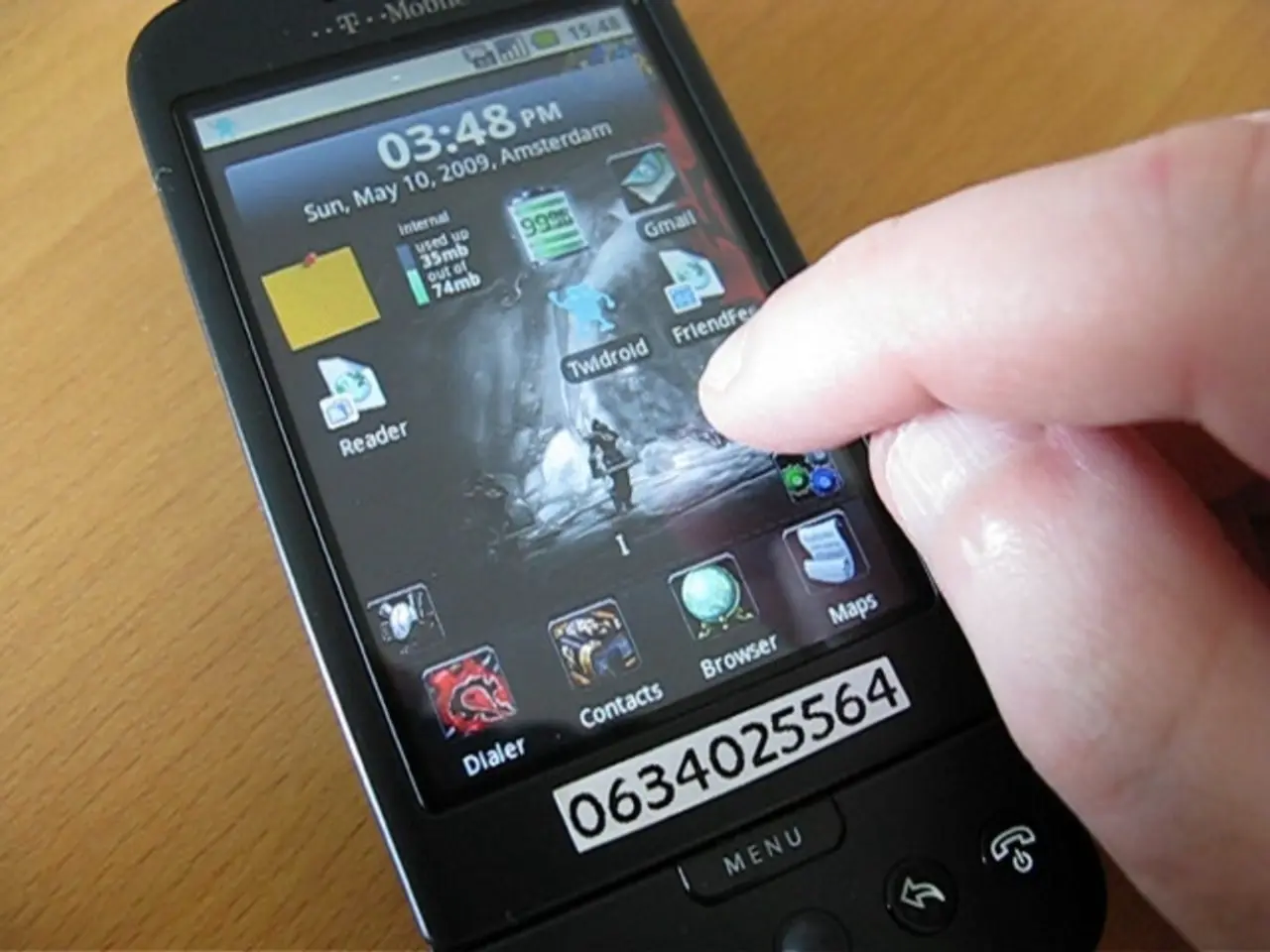Caller identification app, Truecaller, gains 427 million users worldwide amid increasing criticism
In the bustling markets of Lagos, Cairo, and beyond, Truecaller continues to thrive, with over 100 million monthly active users across Android and iOS in the Middle East and Africa (MEA) region. This significant adoption, particularly in countries like Egypt, Nigeria, South Africa, Kenya, Algeria, Ghana, and Jordan, marks a 19% year-on-year increase for the app [1][4][5].
However, the journey for Truecaller in MEA isn't without its challenges. The company is currently under investigation in South Africa due to allegations of false blacklisting of phone numbers, which could potentially impact user trust and privacy perceptions in that market [2].
The Nigeria Data Protection Commission (NDPC) has also launched an investigation into whether Truecaller's operations comply with the Nigeria Data Protection Act. Critics have raised concerns over how Truecaller collects and processes contact data, especially given that much of its directory is crowd-sourced from users' phonebooks [6].
Despite these investigations, Truecaller's growth in MEA is tied to the region's mobile-first living. In Q2 2025, the app averaged 367 million daily active users, boasting an impressive 86% DAU-to-MAU ratio [3]. The app's call-blocking features, particularly valuable in countries where spam calls and fraudulent SMS messages are common, offer a tangible quality-of-life improvement [7].
MEA has been experiencing a surge in smartphone adoption and mobile data access, lowering the barrier to downloading and regularly using apps like Truecaller. Truecaller is active on 20% to 45% of connected smartphones in key markets such as Nigeria, Egypt, South Africa, Kenya, Algeria, Ghana, and Jordan [8].
The ability to keep both user trust and regulatory approval intact will determine Truecaller's long-term dominance in smartphone usage across MEA. In 2024, the company blocked nearly 56 billion unwanted calls globally, demonstrating its commitment to maintaining a clean and spam-free user experience [4].
The ongoing investigations and data protection concerns serve as a reminder of the increasingly complex web of data protection laws across emerging markets. Truecaller's story in MEA is a balancing act between being a vital everyday tool and navigating these complexities [9].
Sources:
[1] Truecaller Blog: Truecaller Reaches 100 Million Monthly Active Users in MEA [2] ITWeb: SA Investigates Truecaller over False Blacklisting Allegations [3] TechCrunch: Truecaller's Growth in Africa Continues Amidst Legal Challenges [4] Truecaller Press Release: Truecaller Blocks Nearly 56 Billion Unwanted Calls in 2024 [5] Statista: Truecaller User Growth in MEA [6] The Guardian: Truecaller under Fire for Data Privacy Concerns [7] Truecaller: How Truecaller Helps You Block Spam Calls and Messages [8] Truecaller Blog: Truecaller's Reach in MEA [9] Wired: Truecaller's Balancing Act in Africa's Data Protection Landscape
- In the realm of home-and-garden or lifestyle improvement, Truecaller's growth in the Middle East and Africa (MEA) might inspire innovations for smartdevices to enhance user experience, particularly in areas like spam call blocking.
- Finance experts may find it interesting to analyze the impact of Truecaller's legal challenges in South Africa and Nigeria on the app's market value, given the significant user base and growth in the MEA region.
- Gadget enthusiasts in MEA might be intrigued by the rising popularity of apps like Truecaller, as smartphones become more accessible and integrated into daily life, thus boosting the overall market for tech products.
- Sustainable-living advocates in MEA may question the environmental implications of Truecaller's data collection and processing practices, given concerns raised by critics and the potential strain this could place on networks and energy consumption.





